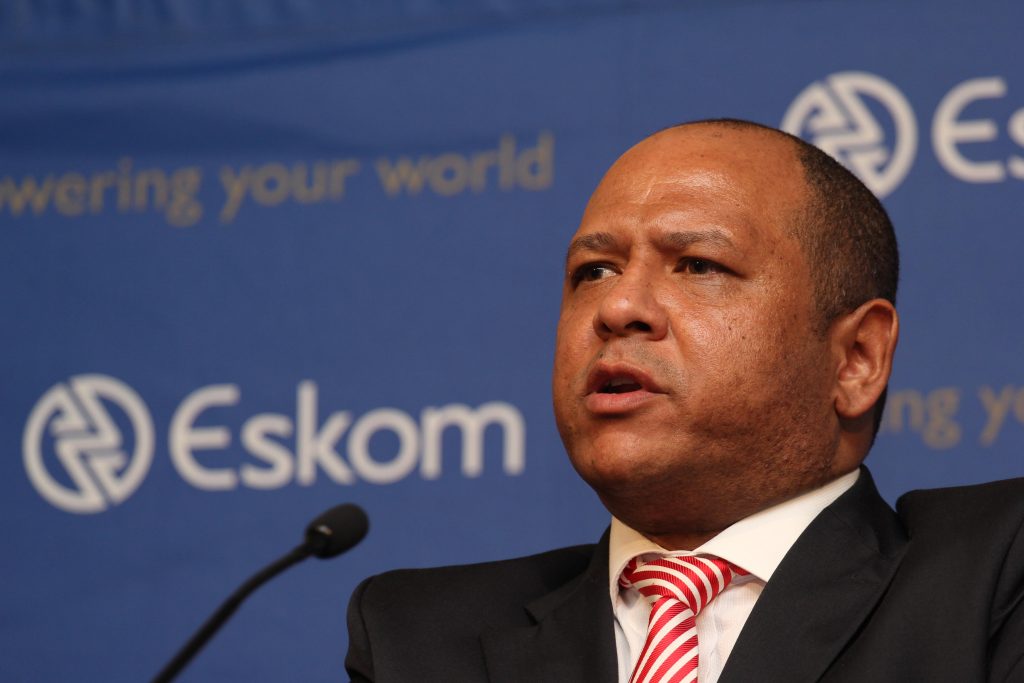Eskom doubles losses to R24bn

Eskom’s net loss for its financial year ended March 2023 has more than doubled to R23.9 billion, from a revised R11.9 billion for its 2022 financial year, as load shedding hit record levels.
The embattled state-owned electricity utility confirmed the wider losses at a delayed financial results briefing on Tuesday.
“We can’t continue releasing results this late,” acting group CEO Calib Cassim said at the start of the briefing.
Despite the wider losses, Cassim said “the time for excuses is over”, declaring that the current year (FY2024) is the last year that the group expects such large losses, with funding from the government expected to stabilise the group in its 2025 financial year.
The government’s R254 billion bailout funding – announced in the February budget – only started flowing to Eskom for the current financial year (2024). However, Eskom came under increased pressure, with Cassim conceding that record levels of load shedding last year (280 days), reduced generation capacity (its EAF or energy availability factor worsened to 56.03% for the year, from 62.02% in 2022), and lower electricity sales, together with a spike diesel costs to run OCGTs (open cycle gas turbines) and increased municipal arrears, contributed to the group’s poorer financial performance.
Eskom’s spend on OCGTs more than doubled, to R29.7 billion from R14.7 billion in 2022.
“We are not out of the woods yet, but we are seeing some positives,” he said.
Cassim, together with Eskom’s new chair Mteto Nyati and the group’s acting chief financial officer Martin Buys, stressed during the briefing that the R254 billion government lifeline would stabilise the group’s financial position but came with strict rules from National Treasury, including that Eskom does not take on any new debt.
Buys noted that Eskom’s cash from operations for the 2023 financial year could not service the group’s debt of R39 billion for the period and its interest costs, which were around R33 billion.
Of the R254 billion earmarked by the government for Eskom over the next three years, around R76 billion is for the current financial year, with Buys saying that the first payment of R40 billion came in August and the other in October.
“Our biggest financial challenges remain the lack of cost-reflective tariffs, excessive use of OCGTs, above inflationary cost increases, non-payment by customers and Eskom’s debt burden,” he said.
“Given these circumstances, a similar net loss after tax is expected for the financial year ended 31 March 2024. This is unfortunately an undesirable situation we find ourselves in,” Buys remarked.
Other financial and operational lowlights and highlights:
Revenue increased to R259.5 billion due to 9.61% tariff increase, however negated by a 5% decline in sales volumes.
Decline in Ebitda (earnings before interest, taxes, depreciation and amortisation) by R14.9 billion – from R53 billion in 2022 to R38 billion in 2023.
Operating profit significantly declined to R5.6 billion from R20.9 billion.
Arrear municipal debt remains an area of concern and had accumulated to R58.5 billion by March 2023, compared to R44.8 billion in March 2022.
Gross debt of R424 billion attracted debt servicing costs of R72 billion – comprising capital repayments of R39 billion and interest payments of R33 billion during the period.
R21.9 billion equity support was received from the shareholder (government) during FY 2023.
Generation unplanned maintenance was at 31.92% (2022: 25.35%), however, planned maintenance remained acceptable at 10.39%.
Kusile Unit 4 achieved commercial operation on 31 May 2022.
Transmission network performance declined while distribution network continued to achieve good performance.

